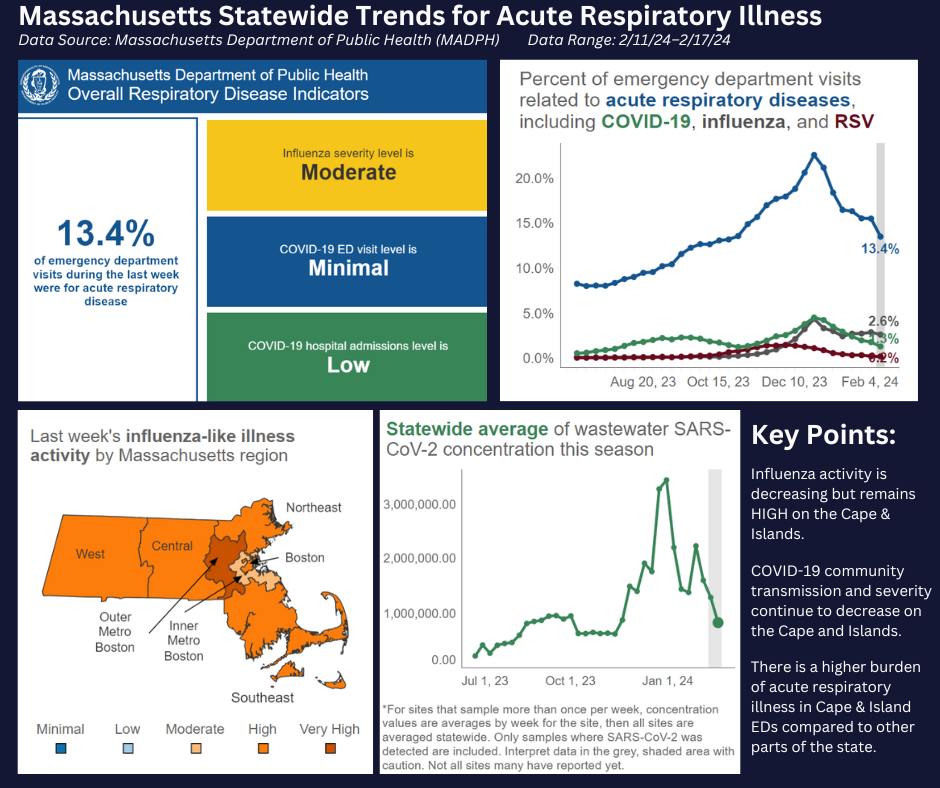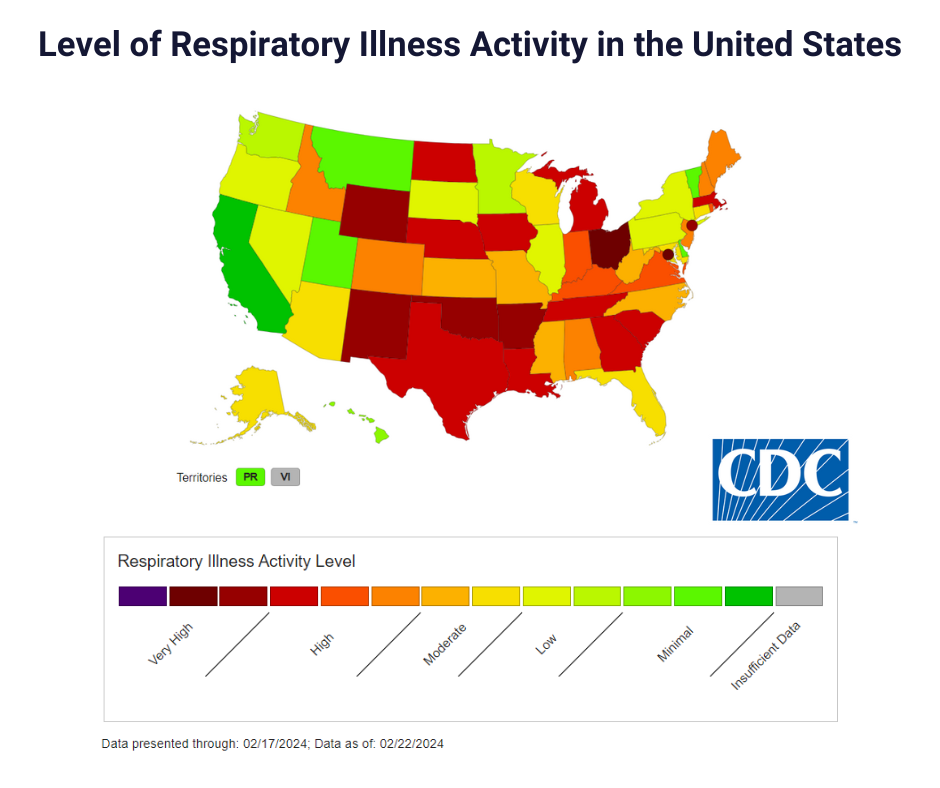
News
Acute Respiratory Illness Update
Published on: February 29, 2024


Data Compiled by Lea Hamner, Contract Epidemiologist with the Barnstable County Department of Health and Environment
The following summarizes current Massachusetts statewide trends with regard to acute respiratory illness. Massachusetts Department of Public Health releases updated data on a weekly basis at Viral Respiratory Illness Reporting | Mass.gov.
- The most recent hospital emergency department data, which includes visits from February 11th through February 17th, show 13.4% of all emergency department (ED) visits statewide were attributable to acute respiratory illness. Of those acute respiratory illness visits, 19% were diagnosed with influenza, 10% with COVID-19, and 1.5% with RSV.
- While influenza-like illness activity is holding steady statewide, it is still presenting at HIGH levels. Young children (<5 years old) are still the highest risk age group for influenza-related ED visits. The severity level for influenza, which includes emergency department visits and hospitalizations, remains MODERATE. It is important to note that influenza can surge multiple times each season, as seen in other parts of the United States.
- COVID-19 emergency department (ED) visits have decreased to MINIMAL, while hospital admissions have remained LOW. The very old (>80 years) and very young (<5 years) continue to be disproportionately affected.
- Vaccination uptake is plateauing, at a lower rate than previous years. The Centers for Disease Control and Prevention (CDC) issued a health advisory on December 14, stating the urgent need to increase immunization coverage for influenza, COVID-19, and RSV. Vaccine coverage data can be found at: https://www.mass.gov/info-details/immunizations-for-respiratory-diseases.
- RSV severity (based on the number of ED visits) continues to remain stable and LOW.
Ways to Protect Yourself and Others
Stay up to date with vaccines:
- Everyone 6 months and older should get a yearly flu vaccine and a current COVID-19 vaccine. Find a vaccine at Vaccines.gov.
- CDC recommends that all infants receive protection from one of these tools to protect them from getting very sick with RSV.
- An RSV vaccine given during pregnancy
- An RSV immunization given to infants and some older babies
- Adults 60 years and older also may receive one dose of RSV vaccine and should talk with their healthcare provider about whether RSV vaccination is right for them.
Additional Measures:
- Seek testing and possible treatment if you get sick
- Improve airflow and ventilation
- Options include bringing in as much fresh air as possible, filtering the air, using a portable air cleaner, turning on exhaust fans, or choosing outdoor options.
- Practice good hand hygiene and cover your coughs and sneezes
- Stay home when you are sick and avoid others who are sick
- Masks can help reduce the amount of germs you breathe in, and can also help protect others if you are sick. Their effectiveness against different viruses varies.
Data Sources/More Information
Viral Respiratory Illness Reporting | Mass.gov
Immunizations for Respiratory Diseases | Mass.gov
CDC Respiratory Virus Updates | CDC



